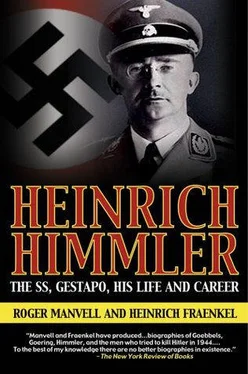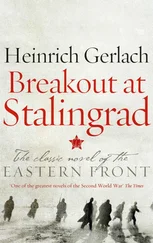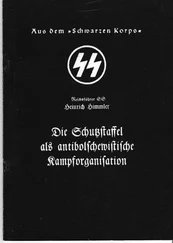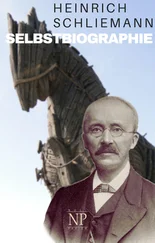Roger Manvell | Heinrich Fraenkel
HEINRICH HIMMLER
The SS, Gestapo, His Life and Career
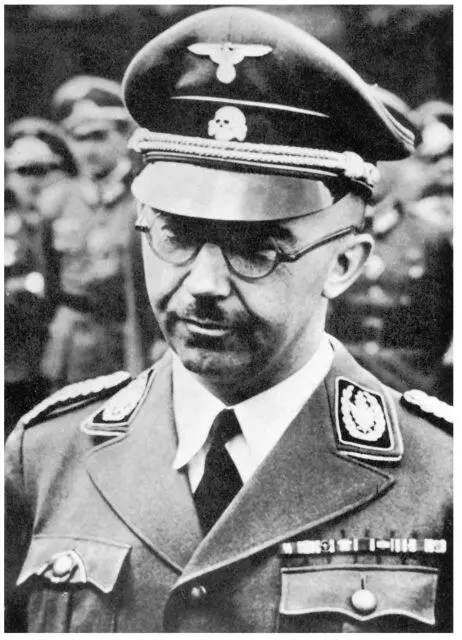
Heinrich Himmler
In addition to the familiar S.S., the Schutzstaffeln or Protection Squads, the following abbreviations are also used frequently throughout this work:
S.A. — the Sturmabteilungen or Assault Sections
S.D. — the Sicherheitsdienst or Security Service
This study of Heinrich Himmler completes the trilogy of biographies we have written about Hitler’s principal assistants in the establishment and control of the Third Reich. The general desire to understand the exact nature of this régime and of the individuals who created it has become more pressing during the past few years, now that both Germany and the world outside have to a great extent overcome the shock to our common humanity inflicted by the Nazis, which either paralyzed or inhibited clear thinking during and immediately after the war. While the Germans have had to come to terms with themselves as the society which enabled Hitler to win control of the state and to establish a modern form of tyranny that eventually covered almost the whole of Europe, the other European powers and the United States have also had to search their consciences in order to discover to what degree they connived at the consolidation of Hitler’s rule.
Our aim in writing these biographies, as well as our other book The July Plot which examines the German resistance movement in its weaknesses as well as in its strength, has been to discover as much as we could of the real nature of the men who helped to create Nazism and to examine all the facts known about them. We are opposed to the sensational kind of interpretation which classes Hitler, Göring, Goebbels and Himmler simply as ‘monsters’, a term used largely by the popular press to separate these much-hated men from ourselves and so comfort their readers. But the fact remains that these ‘monsters’ and their colleagues were for a considerable while circulating freely in both German and European society. They were liked or disliked, despised or feared, accepted socially or avoided in just the same way as other politicians, diplomats and soldiers. The Nazi leaders cannot be voided from human society simply because it is pleasanter or more convenient to regard them now as outside the pale of humanity. The thousands of men and women who worked with them were for the most part their admirers or their willing colleagues, while the influential Europeans and Americans who either actively favoured them or else tolerated them as a rather grim necessity in European politics who should not be opposed by any show of force, are not so far removed from those who actively cheered them in the streets.
The Nazi Party, as Alan Bullock has pointed out in his admirable biography of Hitler, had no political philosophy; their attitude to power was solely that it was something to be won by any means that could be improvised, irrespective of the moral issues involved. It was Hitler’s utter unscrupulousness in handling the political leaders of other countries that preyed on their weakness and took a contemptuous advantage of their traditional sense of values in diplomacy. This lack of scruple is by no means uncommon in many human activities. Indeed, his unscrupulous brilliance was the very aspect of Hitler’s character that excited widespread popular admiration and sympathy between 1933 and 1938, both inside and outside Germany.
The nature of the régime and of the public reaction to it sprang directly from the characters of the men who created it. Though this is in a sense true of all régimes, none in recent history has been so hastily and casually constructed as Hitler’s Third Reich. Both policy and administration were largely concocted as a result of the individual whims of the various leaders, and of intuitive decisions taken at random in response to the mood of the moment or an urgent need to out-smart some opponent. The sufferings of the German people and those they were led to inflict on others twenty years ago were largely the result of the personal psychology of Hitler and of the three men whose lives we have attempted to reconstruct and interpret.
In each case we have tried to approach the task of writing these biographies with as little prejudice as possible. We have described in turn the development of Goebbels, Göring and Himmler through their childhood and adolescence; we have shown how they came to join the Nazi Party and discussed the particular contribution they made to it during its early formative period. There could scarcely have been three more different men than these in temperament and social background, nor could the particular parts they played in supporting Hitler during the years of his power have been more divergent. It has been a profound and at times a shattering experience to retread the familiar path of German history from 1923 to 1945 and interpret it as it was conceived and to a large extent actually created by these men, each of whom in varying degrees formed an individual empire in his own image within the larger empire built by Hitler.
We contend that the twelve years of Nazi rule in Europe offer us as clear a warning for the future in human terms as the explosion of the two atom bombs over Hiroshima and Nagasaki. It was the Nazis themselves who finally forced us to use violence against them when the provocation offered by their actions became too outrageous to be endured. But far too many people favoured what they stood for at the time, or still hanker after their memory today, for us to be sure the warning has been more than superficially taken by the world as a whole. For this reason alone it seems to us necessary to tell the story of these men’s lives without bias or false emphasis, in order to show as precisely as possible what drove these leaders of a great country to behave in the way they did, and what, above all, they have in common with the rest of us, who profess now so readily to detest them.
It has been an illuminating experience for Heinrich Fraenkel to discuss in Germany the character and actions — or often the inaction — of Himmler with men and women who had to work closely with him. In preparing this biography, as with those of Goebbels and Göring, we have gone wherever possible to the sources of first-hand evidence. We have also been greatly assisted by Himmler’s daughter Gudrun and his brother Gebhard, both of whom entertain memories of him which remain affectionate. They still find it very hard to reconcile the image of the man they knew so intimately with the public image of Himmler which was inspired by a fear and a hatred that became universal. It has been our task to try to achieve this reconciliation, to try to understand why this simple, unassuming man became a mass-murderer convinced of the essential rightness of his actions.
Himmler’s contribution to the theory and practice of Nazism was that of a conscientious pedant who had always hankered after being a soldier but had ended by becoming a policeman. His brief career as a commander-in-the-field at the end of the war proved a complete disaster, though not in his own view, since he had to be induced to resign. But in its own strict terms, Himmler’s career as Hitler’s Chief of Police was a triumphant success, and it could be argued that Nazism found its most complete and practical expression in the repressive activities of Himmler’s secret forces. During the war the work of the S.S. and the Gestapo became by far the surest weapon in the exercise of Hitler’s tyranny. It was the extension of this work into the field of mass extermination in order to fulfil a false dream of racial purity which obsessed both Himmler and his master, that made the system become unmanageable. It was destroyed in the act of undertaking the slaughter of others under Himmler’s direct instruction. Death choked itself through its own excesses.
Читать дальше
